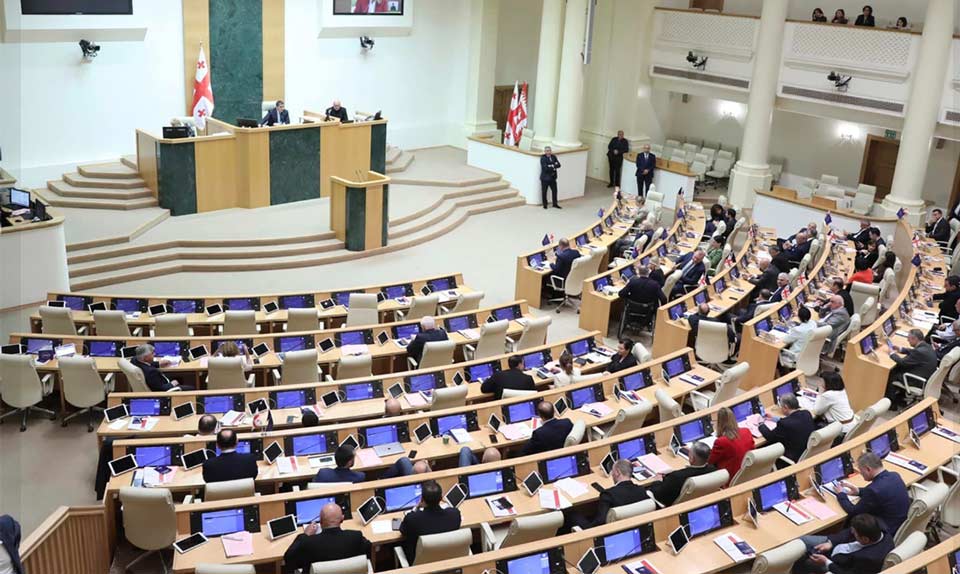The Georgian Parliament has overridden President Salome Zourabichvili’s veto on the Transparency of Foreign Influence law. During the session, 84 members of Parliament registered for the vote, with 66 MPs supporting the override and none opposing it.
Additionally, the Parliament voted on the original version of the law, which passed with 84 votes in favour and four against.
The Georgian President Salome Zourabichvili vetoed the Transparency of Foreign Influence Law on May 18, introducing only one amendment that rendered the law effective for one day following its enactment, losing its validity on the subsequent day.
On May 14, the Parliament passed the draft law On Transparency of Foreign Influence in its third reading.
This law mandates the registration of non-commercial entities and media outlets designated as ‘organizations serving the interests of a foreign power’ if they receive more than 20% of their income from abroad. According to the draft law, these organizations must register in a public database under the same name and declare their received income annually. The Ministry of Justice is authorized to conduct research and monitoring to identify such organizations, with monitoring permitted once every six months. Failure to register as an “organization carrying out the interests of a foreign power” or neglecting to submit the required declaration will lead to a fine of 25 thousand GEL.
Additionally, the draft law outlines several other fines: Failure to fill out the application form within ten working days of accessing the Ministry of Justice’s website will result in a fine of 10 thousand GEL; If defects in the documents are not corrected within the specified period, a fine of 10 thousand GEL will be imposed; Committing an offence stipulated by the law after one month will result in a fine of 20 thousand GEL.
Amendments made during the legal committee’s discussion on April 29 included adding the term ‘non-commercial’ to certain sections of the law.
